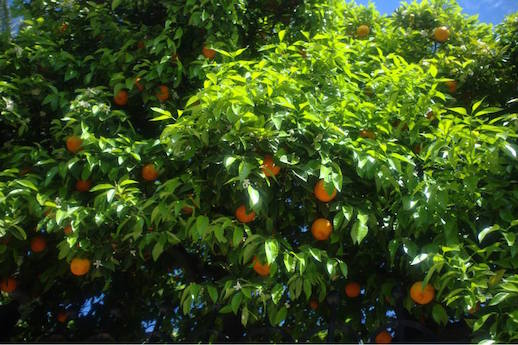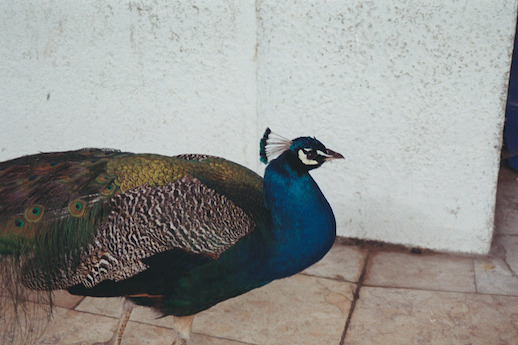Shadows and Reflections: the annual collection of postings where Caught by the River’s contributors and friends take a look back on the events that have shaped the past twelve months. Today it’s the turn of Hayley Flynn.

Throughout the year I’ve spent several weeks returning to regions of Spain that I loved uniquely. San Sebastian for its tiny Victorian seaside perfection. Seville for its insouciant way with a map and compass – a city which insists on orientating its maps in the prettiest, rather than the correct, way. I wondered how many thousands of people were lost at any one moment in that city.
In Seville I visited my good friend – we somehow found the most insalubrious bar in all of the city where I watched, mesmerised, as cocaine was overtly ordered over the bar. I wandered around the labyrinthian street for hours on end; it was Easter and Spring. The orange blossom was everywhere and I craved the smell to the point of wanting to do more than just inhale it but to eat it or somehow become it. I heard of a ‘heladeria’ that made orange blossom ice cream but I walked for an hour only to discover it had closed down. Santa Semana, or Holy Week, was a strange time to be in the city. There were hooded figures walking the streets ahead of religious statues; people dressed all in funereal black on Good Friday; and kids held out bread to priests and clamoured over one another to touch the parading statues. Incense filled the air. Jesus figures would appear from the clouds of heavy smoke like apparitions. I stayed with a Flamenco teacher, an art historian, and later in the year I returned to stay in the flamboyant nightmarish apartment of a famous set designer. Mannequins without heads stood at the foot of my bed and strange masks mounted the walls.
The art historian had artefacts all around the flat, there was a glass cabinet beside my bed full of shards of ancient pottery. My room was a glasshouse on his rooftop with the blue and white tiled dome of a church almost within touching distance of my bed. All around me were art studios and old Moorish structures but a patch of wasteland to one side of the building was my favourite view. I’ve always been in love with wastelands. They remind me of that limbo of youth; pre-teens and of spending the day with boys I had taken a shine to, lighting matches, setting fire to aerosol cans, and enjoying being there on the warm tarmac and concrete that had split and ruptured beneath the grasses we’d crouch amongst.
I spent a few days in Caceres, a three hour bus journey from Seville. I listened to dark, brooding music as I rode through the countryside and the smell of wild lavender fields perfumed the bus. The scrubland was olive green, with flashes of red poppies, and bordered by candy-floss Tamarix bushes. I stayed in a room with a turret and looked over the medieval city. I stood, enraptured by the storks nesting in the rooftops in nests as large as architectural domes, and I watched a peacock for ten minutes one evening as its iridescent tail made a waterfall of feathers down the ancient wall upon which he perched. Just a few days later on my return journey to Seville it seemed as though many of the Tamarix were already balding and brown but I saw them fleetingly, like much of the region, at their most blooming and fruitful.

I improved my Spanish on my trips out there and then I came home and started to learn Swedish. I enjoyed the new way to wrap my lips and tongue around a word.
I began to notice more this year – the nature in the cracks of the city, that sort of thing. I took notes of train journeys I made. I often visited the depths of the Calder Valley, sinking lower and lower into floods and raging rivers, finding myself stranded by the affects of storms.
At Littleborough one on such impossible return journey an older man sat across from me and narrated the journey to his German guest. “You’re in the promised land now” he says, signalling the crossing of the Pennines not far back “It wasn’t Israel, it was Lancashire…”
He talked incessantly and wistfully of the British Empire until his polemology fast became as monotonous and incidental as the sound of the engine. A wood pigeon flew alongside the train as we slowed into Mills Hill. It was a few days before June and it was cold and grey. As we chugged into Manchester I glanced back towards the British man who fell briefly silent and pointed out the Strangeways prison with peculiar pride – the first and only landmark he chose to draw attention to. I took notes of these conversations even on short tram journeys and discovered I worked best during those windows of otherwise lost time.
In late summer I caught a bad case of flu at a wedding amongst the sun-filled flats of Glastonbury, the flu then turned to pneumonia. For weeks my heart raced fast and hard until it felt that my ribs could no longer contain it and my lungs dragged slowly on, shallow and weak. I was also pregnant.
Life was hard at home once there was a third person in the equation and at the end of the year I learned that no matter how much someone loves you it doesn’t mean they can live with you, and that not everybody will accept the prospect of fatherhood. In the run up to Christmas when others were buying trees and planning time with families I found myself wandering the streets, homeless and recently unemployed to boot. I was wearing totally inappropriate shoes for the cold: the ones that happened to be the closest pair to the door the day I left. Each day I looked for a bed and each night tried to shake the feeling of utter failure at adulthood – I’d get into a position at night where I could feel my baby kick and it would remind me to carry on and not to assume I’d fail in motherhood too. I’d shift into a new position and notice the cold of a leather sofa on my hips and hope the next night to have warm fabric beneath me. I’ve discovered that strangers are the kindest of all: friends always assume you have another option.
One day I sat in the middle of a meadow, in the cold mud, not knowing whether to ever stand up and leave again. Pools of murky water filled my shoes through the holes in them and I imagined them becoming sodden and heavy and drawing me into the earth. I saw the dwindling winter light fade rapidly. I played with the idea of sitting there forever through the dark and cold and under the waning black moon, seeing the days pass and the moon grow full and milky again. I envied the birds that flitted from tree to tree.
I put my hand on my belly and thought of freedom and strength. If it’s a boy he’ll be Finch – one of those free birds I so badly wanted to become. If it’s a girl she’ll be Malin – a Shipping Forecast baby; a wild unforgiving sea full of strength.
Hayley Flynn is the creator of Skyliner and winner of Best Arts and Culture Blog in the UK (2014). She mostly writes about cities and their eccentricities, and loves to be amongst the wilderness that’s to be found in those places. Follow her on twitter here.